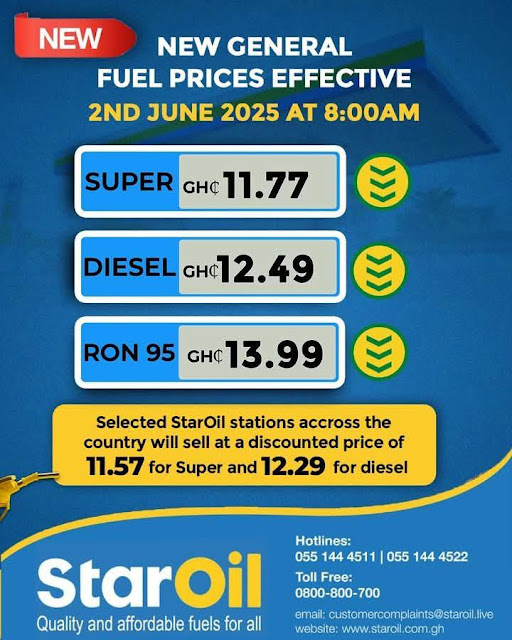Motorists in Ghana can finally breathe easier as leading oil marketing companies, Goil and Star Oil, have announced substantial reductions in fuel prices. This positive development comes in light of the recent appreciation of the Ghanaian cedi against the US dollar, a shift that has been eagerly awaited by consumers and transport operators alike.
Goil, recognized as Ghana's largest indigenous oil marketing company, has implemented a decrease across its entire range of fuels. The new pricing structure reflects these changes: petrol is now priced at ₵12.52 per litre, down from ₵13.27; diesel has seen a reduction to ₵12.98 from ₵13.87; and premium fuel is now available at ₵14.34, down from ₵15.27. Goil's proactive response to the favorable foreign exchange conditions positions it as a frontrunner in the industry, aiming to alleviate the financial pressures that consumers have faced in recent months.
In a similar vein, Star Oil has also adjusted its prices, though its premium fuel remains unchanged. At Star Oil stations, petrol will now cost ₵11.77, reduced from ₵12.57, while diesel prices have lowered to ₵12.49 from ₵13.49. Despite its premium fuel holding steady at ₵14.89, these new prices make Star Oil's petrol among the most competitively priced options available.
The backdrop of these reductions is a notable strengthening of the Ghanaian cedi, which has gained significant value against the US dollar in recent weeks. Given that fuel imports are purchased in dollars, the improving exchange rate has provided an opportunity for oil companies to pass on savings to consumers at the pump. Market analysts suggest that if the cedi maintains its stability and global crude oil prices stay in check, this could herald a broader downward trend in fuel pricing across the country.
You May Also Like
As word of the price cuts spreads, both transport operators and consumers are expressing their gratitude while encouraging other oil marketing companies to join in on the reductions. This collaborative spirit could foster a more competitive market, ultimately driving down transport fares even further. Industry experts anticipate that increased competition and consumer demand may prompt additional retailers to adjust their pricing strategies in response, creating a win-win situation for all involved.

.jpg)



